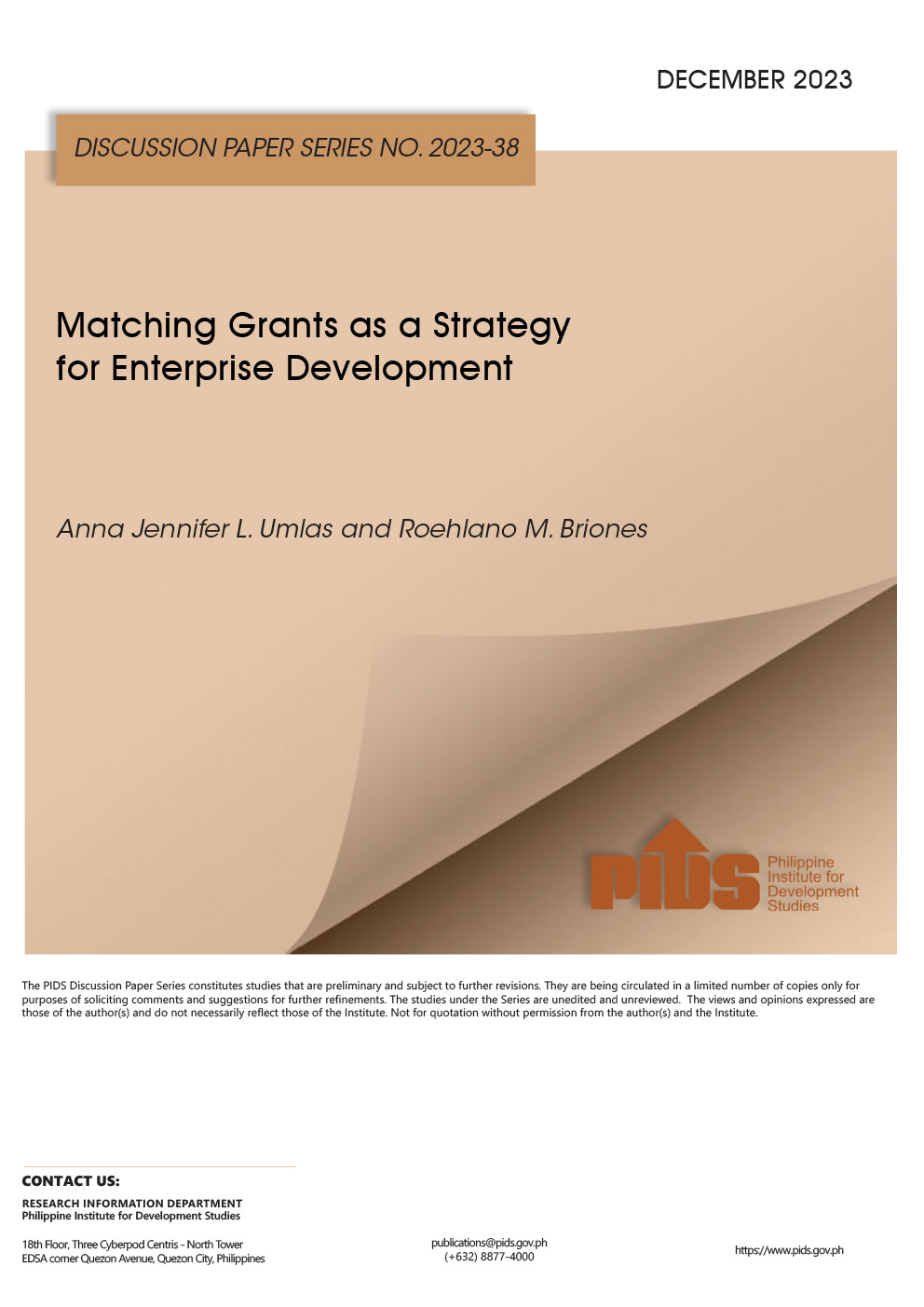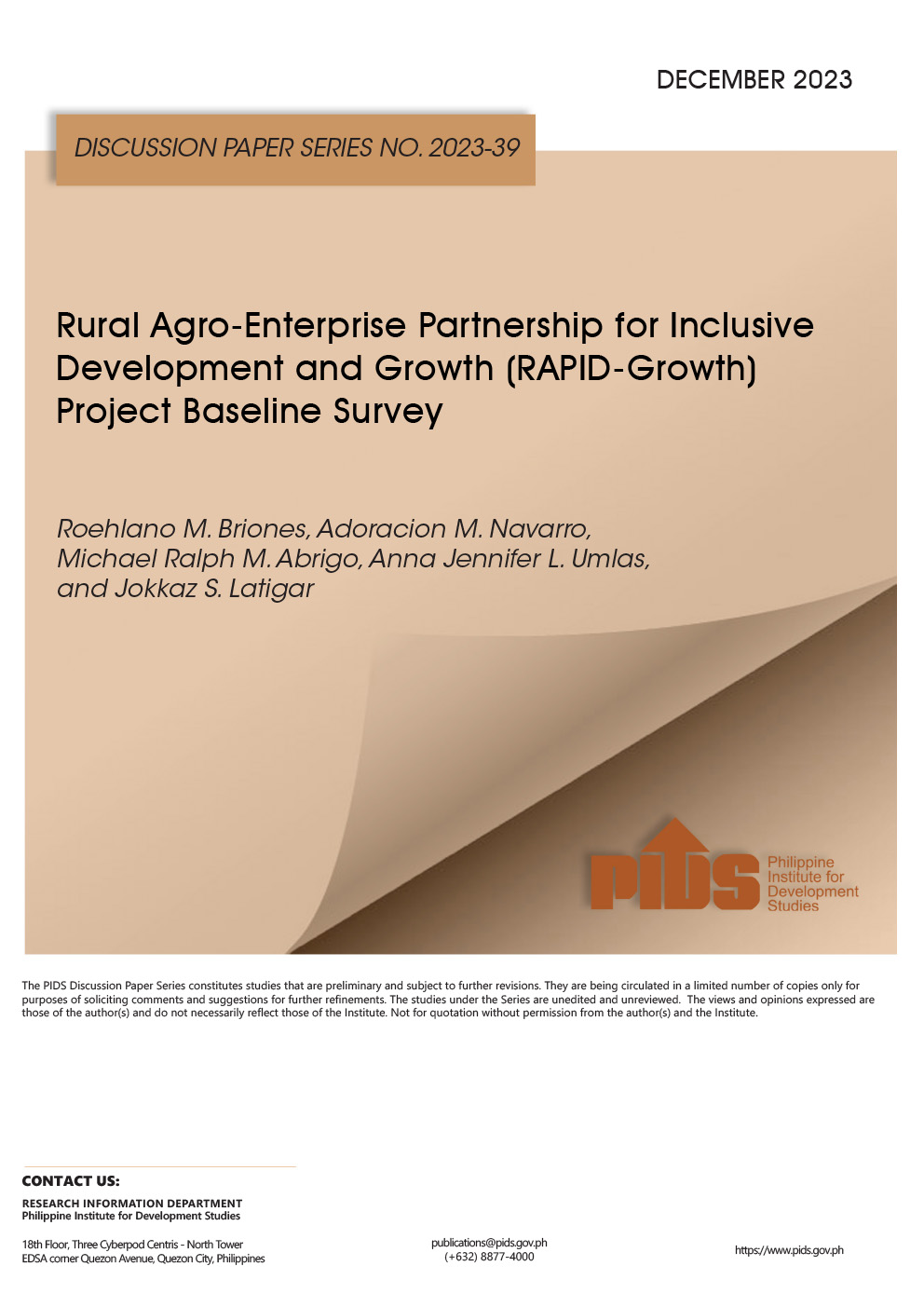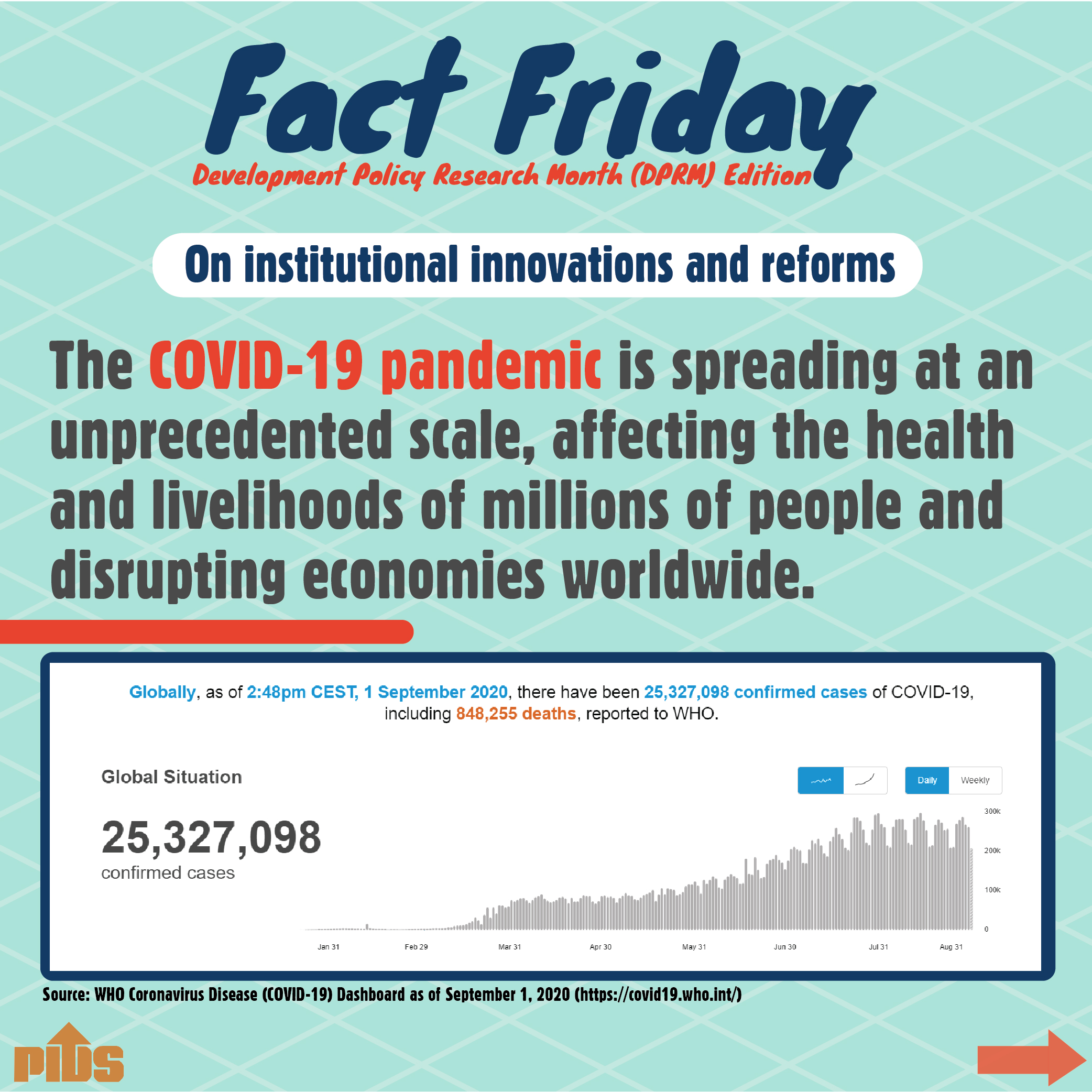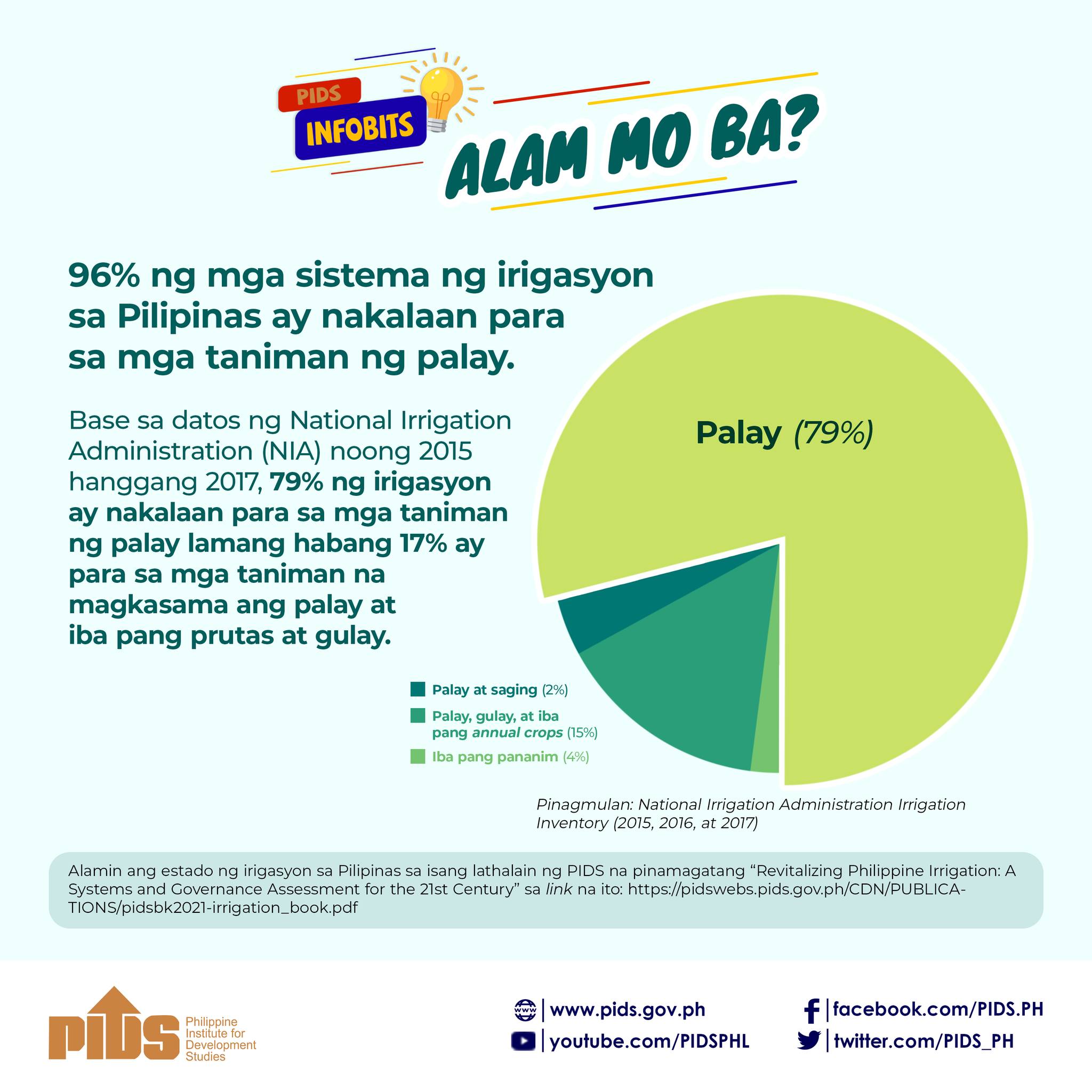Improving irrigation in the Philippines will entail more than just the creation of an apex body for water, a consultant of state-run think tank Philippine Institute for Development Studies (Pids) said.
In a Policy Note, Pids Consultant and University of the Philippines-Los Baños Professor Emeritus Agnes Rola said reforms in water-related institutions will help improve irrigation systems.
The National Economic and Development Authority (Neda) is pushing for the creation of a separate department dedicated to managing and regulating the country’s water resources.
“While this may mean strengthening the NWRB [National Water Resources Board] as the apex body, the mandates of existing water agencies and sectors should also be reviewed,” Rola said.
“Their existing roles and responsibilities would have to be reoriented for them to be synchronized with the regulatory and policy-making role of the proposed water apex body,” she added.
Rola, nonetheless, considers the creation of an apex body for water as a “proactive step” undertaken by the government to implement reform in the sector.
She said at least 13 national agencies play a part in irrigation water governance. This includes the Neda, NWRB, National Irrigation Administration (NIA), the Department of Agriculture’s Bureau of Soils and Water Management, and the Department of Agrarian Reform.
Other agencies involved in irrigation water governance are the National Power Corp., the Department of Environment and Natural Resources-River Basin Control Office (DENR-RBCO), Department of the Interior and Local Government, the Department of Budget and Management, Local Water Utilities Administration, and Metropolitan Waterworks and Sewerage System.
Rola said among these agencies, the NWRB is the “most important player” but it lacked access to data needed for decision-making.
On top of this, she said, the responsibilities of other national agencies also affect the management of irrigation systems. This includes the delays in the project evaluation process of the Neda and fund releases of the DBM.
The proposed apex body for water holds promise that these issues will be avoided. Rola said it is also important for the NIA to craft an integrated irrigation development plan.












